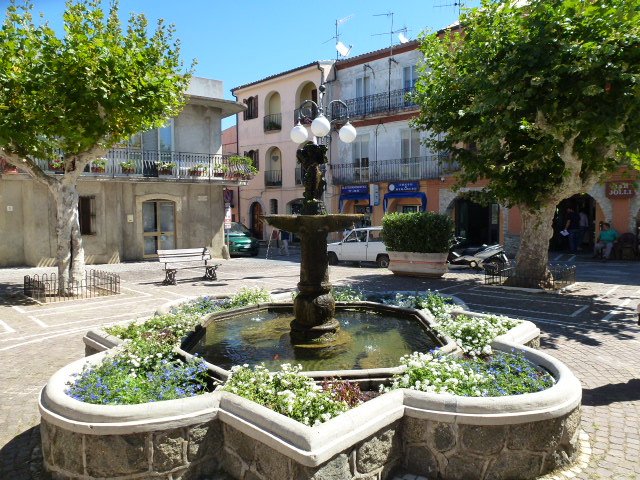The fact that Covid-19 has also had a strong impact on the real estate industry is now evident. Among its consequences, for example, the boom in demand for houses in the countryside, as illustrated in a recent article by Sole24Ore. While waiting to understand whether this trend will continue in the coming months, favored by the spread of smart working, or if it was rather a temporary phenomenon linked to the need for open spaces during and after confinement, let’s examine a closer look at the figures of it.
Back to nature

Demand for cottages and farms in villages and small municipalities has increased by around 30% compared to the pre-Covid period.
Prices often less than a thousand euros per m / q
The prices also encourage investment in rural areas. Prices which are generally much lower than in large cities and which have not undergone major changes despite the increase in demand, on the contrary: on average they have remained stable (+ 0.1%) compared to the pre-Covid period. There are obviously positive exceptions such as the provinces of Rome (+ 25.4%), Pisa (+ 20.1%) and Bologna (+ 18.9%) and negative (Pesaro-Urbino lost almost 12%, Rimini about 10.5%). As for the cost per square meter, the situation is very varied: ranging from the record figures of Montalcino (around 6,700 euros per m / q) and Monte Argentario (5,045 euros / m2) to those much more affordable in Asti (838 euro / m2) , Ragusa (799 euro / m2) and Alexandria (508 euro / m2). In total there are over 100 locations where you can find properties spending less than a thousand euros per m / q.
The future of Italy is in small towns
The future is in small towns: where there is life, clean air, slowness, healthy food. It is in these characteristic villages where time seems to have stood still, we breathe clean air, the rhythms flow more slowly and food and wine promote a diet capable of enhancing the territories, that man should return. Rural life, not lighter and still able to stop on faces. And maybe even know the names of the neighbors. Well-known architects Stefano Boeri and Massimiliano Fuksas have supported the need to encourage residential dispersal, a kind of “city escape”, in response to the Covid-19 pandemic. An “escape from the city” to small towns, the countryside, places currently the least populated. Open and uncontaminated spaces.
The challenge of reconnecting the country to repopulate the villages
Francesco Tarantini, president of Legambiente Puglia, also reminds us of this. The environmental association has just celebrated on June 2 “Loving Italy 2020”, the feast of small municipalities which this year – perhaps not surprisingly – focuses on an important issue for the development and future of Italian villages : let’s reconnect the country. Because without (re) connection, the dreams of repopulating these magnificent districts are much more difficult, because the comfort and services offered by cities and large urban centers are still lacking in many small municipalities. “In small municipalities there is more life than you can imagine, but these territories are constantly struggling against abandonment” – explains Francesco Tarantini, president of Legambiente Puglia-. An inherent law exists but the implementation of the decrees is delayed. We remind you that Law 158/2017 is aimed at centers of less than five thousand inhabitants and provides for accompanying measures including the extension of ultra-broadband, an education plan for rural areas, upgrading of school services, redevelopment of neglected buildings, construction of energy plants from renewable sources, promotion of short-chain agrifood, construction of accommodation facilities. Where is all this? In 2017, we celebrated the approval of the law to safeguard the districts after sixteen years of battles. When will we celebrate its implementation? “.
For this reason, from Puglia, as well as in the rest of the country, Legambiente appealed to the Prime Minister, Giuseppe Conte, signed by many mayors. The aim is for support measures to be put in place for small municipalities. “The pandemic – we read the appeal – has drawn everyone’s attention to the need to rethink the organization and use of territories and, in this regard also, the role of small municipalities in maintaining communities. To do this, a great deal of work to reconnect the country is necessary, by recomposing the original polycentrism and the harmonious model of urbanity. At the center of the infrastructure for restarting the economy, there must necessarily be fast connection as a right of citizenship, which bridges the void of the digital divide at certain times. In fact even today more than 3,900 municipalities do not have fast Internet, 1,200 municipalities do not receive a stable signal for mobile telephony and 5 million Italians do not receive adequate television service. It is a precondition for the territories and the communities to be the protagonists of the rebirth of the country ”.
Without disturbing architects Boeri and Fuksas, it is probably a dream shared by many that of living in less polluting, stressful and deceptive environments. In short, places on a human scale and for children, where to live without giving up all the services and comforts to which we are all used today. Because maybe the future really is in the small municipalities, which represent about 54% of the Italian territory. Territories of less than 5,000 inhabitants focused on innovation and sustainability, local tourism, development and protection of the environment, gastronomic and oenological circuits, promotion of cultures and traditions. These are the ingredients that small municipalities aim to fight against depopulation and the reduction of essential services.